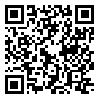Volume 13, Issue 3 (2013)
QJER 2013, 13(3): 87-108 |
Back to browse issues page
Download citation:
BibTeX | RIS | EndNote | Medlars | ProCite | Reference Manager | RefWorks
Send citation to:



BibTeX | RIS | EndNote | Medlars | ProCite | Reference Manager | RefWorks
Send citation to:
Khalili Araghi M, Nobahar E, Ghaemi Dizaji A. An Application of Game Theory in Islamic Economics. QJER 2013; 13 (3) :87-108
URL: http://ecor.modares.ac.ir/article-18-1402-en.html
URL: http://ecor.modares.ac.ir/article-18-1402-en.html
1- Professor of Economics, Faculty of Economics, University of Tehran
2- PhD Candidate in Economics, Faculty of Economics, University of Tehran
3- M. A. in Economics, Faculty of Economics, University of Tehran
2- PhD Candidate in Economics, Faculty of Economics, University of Tehran
3- M. A. in Economics, Faculty of Economics, University of Tehran
Abstract: (10978 Views)
In the holy sharia of Islam, there are rules and regulations for all kinds of transactions. Some of transactions are forbidden. The rule of denial of Gharar is one of these forbidden transactions. According to this rule, all transactions, which face with risk resulting from ambiguity in the deal, ambiguity in ability to give or receive goods or ambiguity in the essential characteristics of the deal, in such a way these terminate to loss are forbidden.
In this paper, the rule of denial of Gharar as one of main economic rules of Islam is examined using game theory technique. The main purpose of this paper is to show the futility reasons of Gharar deals in Islam. In this regard, a hypothetical Gharar transaction is modeled in the framework of game with asymmetric information, and its consequences for the society are investigated. The results show that disregarding this valuable Islamic rule imposes extra costs on society and decreases the social utility. It is demonstrated that if the problem of asymmetric information is resolved, the possibility of Gharar transactions will be reduced and the welfare of the society will be enhanced.
Keywords: C70, D82, : Islamic Economics, Gharar, Asymmetric Information
JEL Classification: Z12, C70, D82
Received: 2012/01/1 | Accepted: 2012/05/9 | Published: 2013/08/23
| Rights and permissions | |
 |
This work is licensed under a Creative Commons Attribution-NonCommercial 4.0 International License. |







